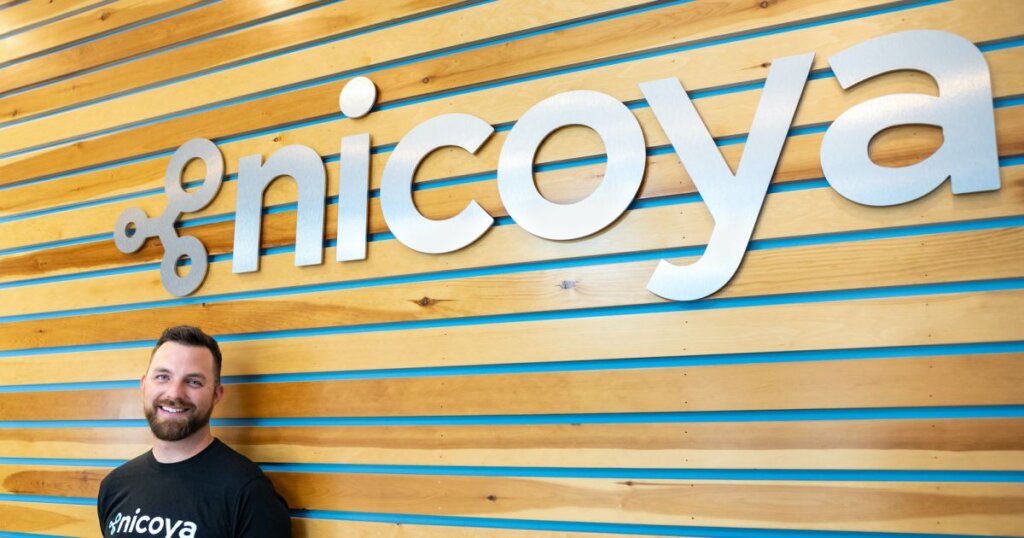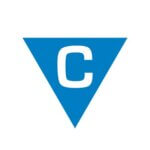Home » Nicoya extends Series A with CDN$20M raise
Nicoya extends Series A with CDN$20M raise

Kitchener-based Nicoya Lifesciences, which uses AI and nanotechnology to make analytical tools for medical researchers, has raised an additional CDN$20 million through an extension of its Series A round.
The new investment adds to the CDN$10 million announced in January 2020 for a combined Series A raise of CDN$30 million.
The money will help Nicoya expand into new international markets and continue to develop its Alto surface plasmon resonance system, which saves researchers time and money as they explore the role of proteins in understanding diseases and developing treatments.
“The team at Nicoya is building disruptive tools for disease and drug discovery research,” said Russell Samuels, Partner at Toronto-based Whitecap Venture Partners, which led the Series A investment. “Their technology is being used every day by scientists who develop life-saving drugs and make key findings about common diseases that affect our lives.”
Other investors include Agilent Technologies, MaRS IAF, Export Development Canada, BDC Capital and Waterloo-based Garage Capital, among others.
By extending the Series A round rather than launching a Series B, Nicoya was able to secure the funding needed to sustain its current momentum without the distraction of mounting a whole new round, said Nicoya CEO and co-founder Ryan Denomme.
“Being able to work with people you already trust and have really good relationships with, and having them continue to support the company and be really bullish on it, that speaks volumes to the quality of the investors we have in this area,” he said. “We might not have the quantity (of investors) we need, but we absolutely have the quality.”
As a medtech company in Waterloo Region, one of Nicoya’s biggest challenges is finding talent with deep experience in the company’s specialized space, Denomme said. To grow successfully, the company has had to look beyond Canada to fill some senior positions.
“We’re really trying to find the best talent and hire the best people, and that’s been probably the most important thing,” he said. “Being able to bring people in that have a lot of expertise from outside of our immediate geographical region.
“We’ve got a number of execs that are in the U.S. and they’ve got 20 or 30 years of experience in our space. You’re just not going to find people locally that have that level of expertise because we just don’t have the industry here to support that kind of career development for somebody in this field.”
Launched in 2012, Nicoya has grown steadily over the past decade. It doubled its workforce to 100 in the past two years. Denomme expects that number to increase to about 140 by the end of 2022.
The company evolved out of Denomme’s experience at the University of Waterloo, where he completed an undergraduate degree in nanotechnology engineering and a master’s degree in mechanical engineering.
While doing his grad work, Denomme noticed that many researchers lacked access to the kind of cutting-edge technology needed to advance their discoveries. He also developed an interest in proteomics, the study of large-scale protein sets associated with a cell, tissue or organism. The understanding of these sets plays a key role in developing treatments to combat disease.
While still a grad student, Denomme saw an opportunity to help reduce the cost and complexity of scientific instruments and to give more researchers ready access to the tools needed to advance their work.
In Nicoya’s early days, there wasn’t much infrastructure or lab space in Waterloo Region for creating science and hardware technology, he said. The company benefited from participation in UW’s Velocity program and Communitech’s former Rev sales accelerator.
“Most people were like, ‘What the hell is biotech? What are these guys doing?’ There wasn’t as much support or knowledge to draw on, so it was a little challenging from that standpoint.”
Denomme credits Velocity for securing more support for companies developing hardware and science technology products.
“That was really instrumental,” he said. “We were able to leverage that – it was like our first real dedicated office lab space. Otherwise, we were kind of piggybacking off of university labs because we just couldn’t afford the amount of capital we would need to get the infrastructure and the resources.
“That was the very early days,” he added. “Now, it’s a really good setup – really good infrastructure, lots of good mentors that have experience in hardware and science and biotech.”
Looking forward, Denomme sees great market potential in proteomics research, given the important role that proteins – like genomic sequencing – play in developing effective treatments for diseases.
“We are entering into the next era of proteomics, the growth of which parallels that of the genomics industry,” he said.
The genomics industry really took off once scientists had the instrumentation to read the genetic sequence of DNA at a low-cost and high-throughput rate.
“That really drove the field forward rapidly and allowed people to understand it at a basic science level and then translate that into practical, clinical outcomes,” Denomme said. “Proteomics has the same, if not more, potential to help inform people’s understanding of their health and also develop drugs to treat people’s health.”
Original Article on Communitech
Kitchener-based Nicoya Lifesciences, which uses AI and nanotechnology to make analytical tools for medical researchers, has raised an additional CDN$20 million through an extension of its Series A round.
The new investment adds to the CDN$10 million announced in January 2020 for a combined Series A raise of CDN$30 million.
The money will help Nicoya expand into new international markets and continue to develop its Alto surface plasmon resonance system, which saves researchers time and money as they explore the role of proteins in understanding diseases and developing treatments.
“The team at Nicoya is building disruptive tools for disease and drug discovery research,” said Russell Samuels, Partner at Toronto-based Whitecap Venture Partners, which led the Series A investment. “Their technology is being used every day by scientists who develop life-saving drugs and make key findings about common diseases that affect our lives.”
Other investors include Agilent Technologies, MaRS IAF, Export Development Canada, BDC Capital and Waterloo-based Garage Capital, among others.
By extending the Series A round rather than launching a Series B, Nicoya was able to secure the funding needed to sustain its current momentum without the distraction of mounting a whole new round, said Nicoya CEO and co-founder Ryan Denomme.
“Being able to work with people you already trust and have really good relationships with, and having them continue to support the company and be really bullish on it, that speaks volumes to the quality of the investors we have in this area,” he said. “We might not have the quantity (of investors) we need, but we absolutely have the quality.”
As a medtech company in Waterloo Region, one of Nicoya’s biggest challenges is finding talent with deep experience in the company’s specialized space, Denomme said. To grow successfully, the company has had to look beyond Canada to fill some senior positions.
“We’re really trying to find the best talent and hire the best people, and that’s been probably the most important thing,” he said. “Being able to bring people in that have a lot of expertise from outside of our immediate geographical region.
“We’ve got a number of execs that are in the U.S. and they’ve got 20 or 30 years of experience in our space. You’re just not going to find people locally that have that level of expertise because we just don’t have the industry here to support that kind of career development for somebody in this field.”
Launched in 2012, Nicoya has grown steadily over the past decade. It doubled its workforce to 100 in the past two years. Denomme expects that number to increase to about 140 by the end of 2022.
The company evolved out of Denomme’s experience at the University of Waterloo, where he completed an undergraduate degree in nanotechnology engineering and a master’s degree in mechanical engineering.
While doing his grad work, Denomme noticed that many researchers lacked access to the kind of cutting-edge technology needed to advance their discoveries. He also developed an interest in proteomics, the study of large-scale protein sets associated with a cell, tissue or organism. The understanding of these sets plays a key role in developing treatments to combat disease.
While still a grad student, Denomme saw an opportunity to help reduce the cost and complexity of scientific instruments and to give more researchers ready access to the tools needed to advance their work.
In Nicoya’s early days, there wasn’t much infrastructure or lab space in Waterloo Region for creating science and hardware technology, he said. The company benefited from participation in UW’s Velocity program and Communitech’s former Rev sales accelerator.
“Most people were like, ‘What the hell is biotech? What are these guys doing?’ There wasn’t as much support or knowledge to draw on, so it was a little challenging from that standpoint.”
Denomme credits Velocity for securing more support for companies developing hardware and science technology products.
“That was really instrumental,” he said. “We were able to leverage that – it was like our first real dedicated office lab space. Otherwise, we were kind of piggybacking off of university labs because we just couldn’t afford the amount of capital we would need to get the infrastructure and the resources.
“That was the very early days,” he added. “Now, it’s a really good setup – really good infrastructure, lots of good mentors that have experience in hardware and science and biotech.”
Looking forward, Denomme sees great market potential in proteomics research, given the important role that proteins – like genomic sequencing – play in developing effective treatments for diseases.
“We are entering into the next era of proteomics, the growth of which parallels that of the genomics industry,” he said.
The genomics industry really took off once scientists had the instrumentation to read the genetic sequence of DNA at a low-cost and high-throughput rate.
“That really drove the field forward rapidly and allowed people to understand it at a basic science level and then translate that into practical, clinical outcomes,” Denomme said. “Proteomics has the same, if not more, potential to help inform people’s understanding of their health and also develop drugs to treat people’s health.”
Communitech
https://communitech.ca
"Communitech helps tech-driven companies start, grow and succeed. Communitech was founded in 1997 by a group of entrepreneurs committed to making Waterloo Region a global innovation leader. At the time it was crazy talk, but somehow this community managed to pull it off. Today, Communitech is a public-private innovation hub that supports a community of more than 1400 companies — from startups to scale-ups to large global players. Communitech helps tech companies start, grow and succeed in three distinct ways: - Communitech is a place – the center of gravity for entrepreneurs and innovators. A clubhouse for building cool shit and great companies. - Communitech delivers programs – helping companies at all stages with access to capital, customers and talent. We are here to help them grow and innovate. - Communitech partners in building a world-leading ecosystem – making sure we have all the ingredients (and the brand) to go from a small startup to a global giant."


